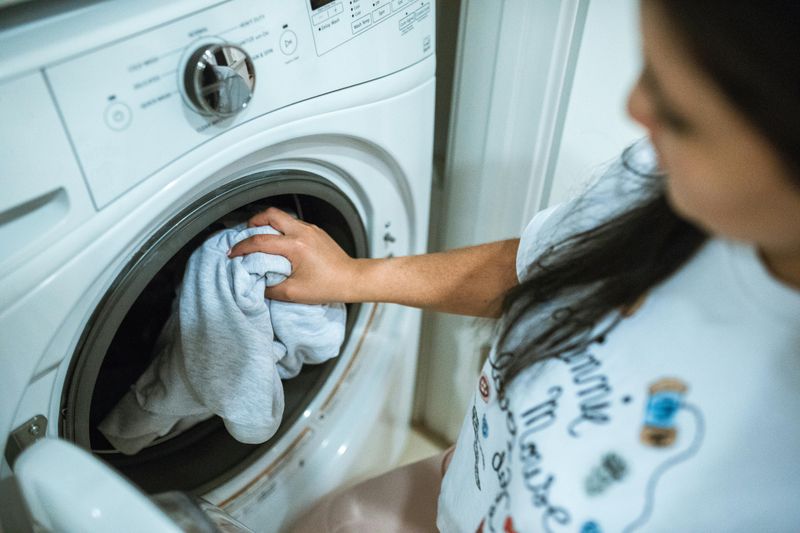Growing up, our parents do more than just keep us fed and clothed – they prepare us for the real world. The most valuable lessons often happen right at home, through everyday teachings that shape who we become. While technology and trends change, certain skills remain timeless foundations for success and independence. These seven classic life skills separate those who can confidently navigate adulthood from those who struggle with basic self-reliance.
1. Problem-Solving and Resourcefulness

The most valuable parental response to “I can’t do it” might have been “Try again a different way.” Parents who encouraged independent thinking fostered creativity and resilience that serve their children throughout life. Rather than immediately providing solutions, wise parents asked guiding questions and celebrated innovative attempts. This approach builds confidence to tackle unfamiliar challenges without panic.
Remember when something broke and you had to improvise a fix before Mom or Dad got home? Or when you had to figure out an alternative plan when the original fell through? The ability to think critically, adapt to unexpected circumstances, and find solutions with available resources is increasingly valuable in our rapidly changing world. This skill transforms obstacles into opportunities for growth.
2. Cooking Basic Meals

The kitchen might have seemed like a mysterious place when you were small, but learning to transform raw ingredients into delicious meals is truly empowering. Beyond just following recipes, understanding how flavors work together and mastering techniques like properly chopping vegetables or cooking meat to safe temperatures builds confidence. Many adults today struggle with this fundamental skill, resorting to expensive takeout or processed foods.
Remember when Dad taught you to make his famous pancakes or Mom showed you how to roast a chicken? Those weren’t just cooking lessons – they were stepping stones to self-sufficiency. Knowing how to feed yourself well is perhaps the most practical daily skill anyone can possess.
3. Minding Your Manners

“Please” and “thank you” might seem like small words, but they open big doors. Genuine politeness isn’t about rigid rules – it’s about making others feel valued and respected. Those dinner table corrections about elbows and interrupting weren’t just your parents being fussy. Good manners create positive first impressions in job interviews, dates, and everyday interactions. They signal that you’re thoughtful and considerate.
In our increasingly digital world, showing real-life courtesy sets you apart in the best possible way.
4. Budgeting and Saving Money

Money management rarely makes school curriculums, yet it’s something we use daily. Smart parents teach their children the value of a dollar through allowances, savings accounts, and honest conversations about family finances. Financial literacy starts with simple lessons: setting aside birthday money, saving for special purchases, and understanding needs versus wants. Those piggy banks and first bank accounts weren’t just cute – they were training grounds for adult financial responsibility.
Parents who explained interest, debt, and the importance of emergency funds gave their children invisible wealth. Adults who can budget effectively, avoid unnecessary debt, and plan for the future enjoy freedom that no luxury purchase can provide. This skill literally pays dividends throughout life.
5. Doing Laundry and Basic Home Care

Laundry day might have seemed like a chore when you were growing up, but separating whites from colors and knowing which settings to use prevents many wardrobe disasters. Beyond clean clothes, understanding how to maintain a living space – from unclogging drains to changing air filters – creates self-reliance that roommates and partners will appreciate. Remember when your parents showed you how to properly clean a bathroom or iron a shirt? These weren’t punishment but preparation.
Many young adults find themselves overwhelmed by basic home maintenance their peers seem to instinctively understand. The satisfaction of maintaining your own space cannot be overstated. These skills represent true independence and respect for your environment and belongings.
6. Effective Communication

Long before email and texting, parents who encouraged family discussions were building communication muscles their children would use forever. Learning to express feelings appropriately, listen without interrupting, and navigate disagreements respectfully are skills that strengthen every relationship in life. Those dinner table debates and enforced apologies taught valuable lessons about tone, body language, and choosing words carefully.
The ability to clearly articulate thoughts – whether in a boardroom presentation or a heart-to-heart conversation – directly impacts success and happiness. Parents who modeled healthy communication during conflicts provided an invaluable blueprint. This skill transcends all others because it’s how we connect meaningfully with fellow humans, whether explaining a complex idea or simply asking for help.
7. Time Management and Punctuality

“We’re leaving in five minutes!” That familiar parental countdown was actually training for real-world deadlines. Parents who emphasized being on time weren’t just avoiding tardiness – they were teaching respect for others and personal accountability. Learning to estimate how long tasks take, prioritize responsibilities, and plan ahead prevents the chaos of perpetual lateness. Remember homework schedules, chore charts, and being ready when the school bus arrived? These routines built time awareness that transfers to adult responsibilities.
In professional settings, punctuality signals reliability and organization. The ability to manage time effectively reduces stress and creates space for both productivity and relaxation – a balance many adults struggle to achieve without early training.

Comments
Loading…